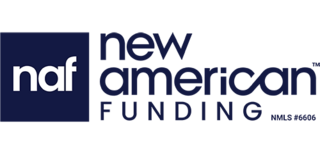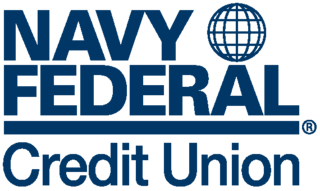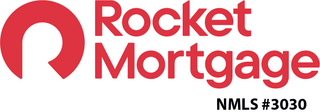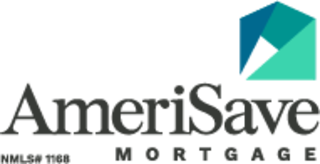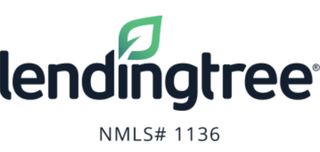5 Best Mortgage Refinance Companies of February 2026
*Sample rates presented here are valid as of January 30 and can change at any time.
Homeowners are holding record levels of home equity due to the significant increase in home prices during the pandemic. This equity translates into a reliable source of cash for homeowners who may need extra cash to consolidate debt, pay medical bills or give their home a new look.
Mortgage refinancing is one way you can access that cash. However, refinancing can also be beneficial if you want to modify your current mortgage's rate and term to improve your financial situation. Whatever the reason you’re considering a mortgage refinance, finding the right lender is the first step.
We’ve done the research for you, and here are our top picks.
What to know about mortgage refinancing
- Refinancing your mortgage means taking out a new loan to replace your old one, typically with a more favorable interest rate or loan term. This process also allows you to transition to a loan type that better suits your current needs, such as from an adjustable-rate to a fixed-rate mortgage.
- Refinancing only makes sense if it delivers a tangible benefit, such as a lower monthly payment or the ability to use your home equity to pay off higher-interest debt.
- The refinancing process is similar to applying for a purchase loan and typically involves similar costs and requirements.
How we chose our top picks
Money reviewed over 35 of the largest mortgage refinance products and lenders. We used publicly available data and confirmed its accuracy through interviews with lender representatives. We then narrowed our list of lenders based on factors such as interest rates, fees and costs, term options, customer satisfaction rankings, and credit score requirements, and scored each lender on a scale of one to five. Our top picks received the highest combined score among all the lenders we considered.
Read the full methodology for more information.
Our top picks for the best mortgage refinance lenders of February 2026
- CrossCountry Mortgage: Best Overall
- Rate: Best for Fast Closing Times
- New American Funding: Best for Low Rates
- Navy Federal Credit Union: Best for Military Members
- Rocket Mortgage: Best for Customer Satisfaction
Best mortgage refinance companies reviews
- Offers a wide variety of readily available loans with competitive rates and credit score requirements.
- Closes in as little as 10 days
- Rate float downs available
- Doesn’t provide sample rates, fees or loan cost information on its website
- Refinance Loans offered
- Rate and term, FHA, VA, USDA, cash-out, renovation loan and HELOC. Fixed and adjustable rate loans
- Minimum credit score
- 500 (some loan products have no minimum)
- Sample rate
- N/A
- Maximum loan amount
- $5 million
- Loan-to-value ratio
- Not available
- Availability
- 50 U.S. states, Washington, D.C. and Puerto Rico
Why we chose it: CrossCountry Mortgage achieved the highest rating in our analysis of refinance companies. The lender’s combination of low credit score requirements, widespread availability and variety of loan products placed it above many of its competitors. Add to that a fast funding process that allows you to close on a loan in as little as ten days, and you’ve got a winning combination.
- Fast closing time
- Competitive mortgage rates
- Low credit score requirement
- Limited loan options
- Charges an application fee
- Refinance Loans offered
- Rate and term, cash-out refinance, FHA and VA loans
- Maximum loan-to-value ratio
- Up to 100%, depending on loan product
- Minimum credit score
- 580 standard, 500 for some loan products
- Sample rate
- 5.920% APR for a 30-year loan
- Maximum loan amount
- $30,000 minimum, maximum amount varies
- Availability
- All 50 states
Why we chose it: If you need to refinance your mortgage quickly, Rate is a lender worth considering. The lender says it takes 21 days on average to close a loan, which is one of the fastest turnaround times among the lenders we considered (and well below the industry average of 30 to 45 days). Rate also accepts borrowers with poor credit and offers competitive interest rates.
- Consistently lower rates than competitors
- Low credit score requirement
- Fast closing time
- No lender fee or closing cost information on the website
- Refinance Loans offered
- Rate and term, cash-out, HELOC, FHA and VA streamline refinances
- Minimum credit score
- 500, some loan products with no minimum required
- Sample rate
- As low as 5.924% APR with 3.000 points paid, 30-year fixed-rate loan
- Maximum loan amount
- Varies
- Maximum loan-to-value ratio
- Up to 100%, depending on loan product
- Availability
- 50 states and Puerto Rico
Why we chose it: New American Funding offered the lowest interest rates during our evaluation period, making it our pick for securing a low rate (though you should still shop around). However, the lender offers additional perks. It provides flexible loan terms, including interest-only loans and 40-year terms.
- Developed specifically for service members
- Specializing in VA loans
- Low loan origination fee that you can waive
- Product offerings are limited to VA and conventional loans
- Requires credit union membership
- Refinance Loans offered
- Rate and term, cash-out, VA and VA streamline loans
- Minimum credit score
- Varies
- Sample rate
- As low as 5.661% APR (30-year VA loan with 0.500 points paid); 5.614% APR (30-year fixed rate conventional loan with 0.250 points paid)
- Maximum loan amount
- Not specified
- Maximum loan-to-value ratio
- Up to 100% for VA loans, 95% to 97% for conventional loans
- Availability
- 367 branches available worldwide
Why we chose it: Navy Federal has the experience to navigate the complexities of VA loan requirements. Additional perks include the Special Freedom Lock, which lets you lock in your rate for 60 days. You can also receive up to two rate float-downs totaling 0.50 percentage points, all without paying a rate-lock fee. The lender charges a 1% origination fee, which you can waive in exchange for a 0.25% rate increase.
- Consistently ranks at the top of independent customer satisfaction surveys
- Competitive interest rates
- Low credit score requirements
- Limited loan options
- Higher than usual closing costs
- Refinance Loans offered
- Rate and term, VA, FHA and Cash-out loans
- Minimum credit score
- 620 for conventional loans, 580 for FHA and VA loans
- Sample rate
- As low as 6.154% APR with 1.875 points paid, 30-year fixed rate conventional loan
- Maximum loan amount
- Varies
- Maximum loan-to-value ratio
- 97%
- Availability
- 50 states
Why we chose it: Rocket Mortgage has regularly topped the list of J.D. Power’s Mortgage Servicer Satisfaction and Origination Surveys, and consistently receives five-star ratings on third-party customer ranking sites like Trustpilot. The lender offers a fully online application and funding process, along with a variety of additional perks, including closing-cost discounts for customers who refinance within 18 months of signing their original Rocket Mortgage loan.
Other companies we considered
We reviewed other lenders that didn’t make our top picks, but they still offer products worth considering. Always take the time to evaluate different lenders and find the right option for you.
Pennymac
Pennymac offers a wide variety of refinance loans and requires a low minimum credit score of 620. The company's only fees (lender fees) are lower than those of most competitors. You’ll pay either a flat fee of $500 or 0.95% of the loan amount, both of which are below the industry average of 1% to 2% of the borrowed amount.
Why we didn’t choose it: Pennymac’s mortgage rates were typically higher than those of other lenders we analyzed, making it a good option but not a top pick.
Movement Mortgage
If you own a rental property and are considering refinancing to free up cash, consider Movement Mortgage. The lender offers conventional and cash-out Debt-Service Coverage Ratio (DSCR) loans that allow investors to use alternative income documentation, such as bank statements or profit-and-loss statements, to refinance their loans. To qualify for Movement’s DSCR loans, you must have a minimum 640 credit score, a maximum LTV of 80% and the property’s rental income must cover 75% or more of the mortgage payment.
Why we didn’t choose it: Movement’s website lacks information on closing costs, lender fees and sample rates, and they did not respond to our request for additional details.
What to know about mortgage refinancing
Refinancing your home loan can be a valuable tool if you want to get better loan terms or take advantage of the increased value of your home, but as with any type of loan product, there are pros and cons. Here’s how to determine if refinancing is right for you or if you should consider other options.
When does mortgage refinancing make sense?
Just because you can refinance your loan doesn’t mean you should. As we mentioned before, the benefits need to outweigh the costs, or you'll end up in a worse financial position.
One of the most popular refinancing options is a rate-and-term refi, which replaces your existing mortgage with one at a lower rate. This typically results in lower monthly payments. Most experts agree that a refi is worthwhile if you can lower your rate by 0.75% to 1% (for example, from 6.75% to 6% or 5.75%). On a $450,000 loan, that would reduce your monthly payment by at least $200.
Refinancing can be beneficial for other reasons as well. If you have an adjustable-rate loan, for example, you may want to consider converting it to a fixed-rate mortgage to lock in a more favorable rate. Or maybe you want to tap into your home equity to pay for a home renovation. We’ve outlined the loan types that are appropriate for these scenarios (and a few others) later in this guide.
When does mortgage refinancing not make sense?
However, securing a lower rate is just one part of the equation. Melissa Cohn, regional vice president at William Raveis Mortgage, says the costs of taking out a new loan must also be factored into your decision.
"The closing costs are key to ensuring economic benefit," Cohn says. "You need to look at the monthly savings in the payment versus how much it will cost you to close."
Refinancing might not be the best move if you plan to sell your home before you reach your break-even point — that is, before your savings outweigh the refinancing fees.
Refinancing also isn’t a good idea if you don’t qualify for a lower rate or better terms, and you end up paying more than you currently do. If the closing costs are more than you can afford, or if extending the loan term would result in significantly higher interest over time, a refi may not be your best choice.
Carefully weigh the benefits against the risks to determine if a refi makes financial sense. If you’re unsure, talk to an experienced mortgage lender who can evaluate your budget, walk you through your options and help you find the best solution.
Types of refinance loans
It doesn’t matter if you have a conventional loan, a government-backed loan such as an FHA or VA loan, or a jumbo loan — under the right conditions, refinancing is a possibility
There are four main options to consider, each addressing a different goal.
- Rate-and-term refinance: Replaces your current mortgage with a new one that offers a lower interest rate and monthly payment, a different repayment schedule, or both.
- Cash-out refinance: Allows you to tap into your home equity to get cash. The new loan balance is higher than your existing loan, and the proceeds are used to pay the outstanding balance of your original loan. You’ll receive the difference as a lump-sum payment.
- Cash-in refinance: This option allows you to take out a new loan for a lower amount than your current loan by making a lump-sum payment, similar to a down payment, thereby reducing the amount you borrow. By borrowing less, you may qualify for a lower interest rate and save on the monthly payment.
- Streamline refinance: This option provides a faster application and approval process with fewer documentation requirements for borrowers refinancing FHA, VA and USDA loans.
- No-closing cost refinance: This type of loan rolls your refi closing costs into the new mortgage if you don’t have the cash to cover these expenses. However, by including closing costs in the loan, your loan amount and monthly payments increase.
- Reverse mortgage: Specifically designed for homeowners 62 or older, this loan allows you to take equity out of your home, pay off any outstanding mortgage balance and use the excess proceeds as you see fit. There are no required monthly payments, and repayment isn’t due until you permanently move out of the home or die. (In which case, your heirs would be responsible for repaying the rest of the balance).
- Short refinance: If you default on your loan, a lender may offer to refinance your mortgage for a lower amount and forgive the difference between the new loan amount and the original balance. It can be a less expensive option than going through the foreclosure process.
The pros and cons of mortgage refinancing
PROS | CONS |
|---|---|
Lower interest rates and monthly payments | Can temporarily lower your credit score |
Potentially less interest paid over time | Can extend the repayment period, potentially leading to more interest paid over time |
Access to home equity | Must pay for closing costs and other fees |
New repayment terms |
How to choose a mortgage refinance company
Finding the best interest rate and lowest fees are the main factors to consider when shopping for a refinance company, since these directly affect the total cost of your loan. However, there are other factors to consider. These include:
Experience
A lender or loan officer with years of experience can be an asset during the loan process, since they’ll be familiar with your local real estate market and lending conditions. Their expertise enables them to ask targeted questions, helping you pinpoint your goals and recommend the best options to achieve them.
Product knowledge
Look for lenders knowledgeable about various loan types. They’ll be better able to recommend the right product once they understand your goals and needs, compared with a lender that offers only one specific type of loan. Some lenders may be able to provide solutions for more complex financial situations, such as those involving borrowers with alternative income sources or self-employment, if they are familiar with a variety of loan options.
Transparency
Paying unnecessary fees can significantly increase your monthly payments and the total loan amount. Your lender must provide a detailed loan estimate up front. This document should include details of the interest rate you may qualify for, lender’s fees, closing costs and the total loan cost. A good lender will explain each item in detail and answer all your questions so you can avoid unpleasant surprises when it’s time to close on the loan.
Communication
The mortgage process can be nerve-wracking. Having a lender that keeps you promptly informed of your application's progress can help ease some of that anxiety. The last thing you need is to chase after a lender for a status update.
Alternatives to mortgage refinancing
Depending on your reasons for refinancing, there may be other options worth considering. If, for instance, you want to tap into the equity you’ve gained or are looking for cash to make home improvements, here are a few funding alternatives you may want to explore.
- Home equity loan: A home equity loan is a second mortgage on top of your existing loan. This loan might be a good option if you have a much lower interest rate on your primary mortgage and don’t want to refinance into a higher rate. However, you need to be financially able to carry two mortgage payments.
- Home equity line of credit (HELOC): A HELOC is a good alternative if you need access to money when a need arises or as an emergency reserve. It works much like a credit card in that you can use the money, make interest-only payments during the draw period, and repay the amount you’ve withdrawn to replenish the line of credit.
- Home equity sharing agreements (HEAs): These relatively new products allow homeowners to access their equity without taking out a loan or making extra monthly payments. In essence, an investment company buys a share of your home’s future value in exchange for a lump sum payment. At the end of the agreement, you will repay the original “loan” amount plus an agreed-upon percentage of your home’s appreciated value.
- Personal loan: For smaller sums, like a few thousand dollars, consider a personal loan. Interest rates are lower than those on credit cards, and loan terms are typically short. They also take less time to apply for, obtain approval and receive funding than a mortgage refinance.
Latest news in mortgage refinancing
In January, the federal government announced it would buy $200 billion in mortgage bonds. The news closed the spread between yields on the 10-year Treasury note and the interest rates typically influenced by yield movements. As a result, mortgage rates reached their lowest level in three years.
With rates moving closer to the 6% mark, recent homebuyers have an opportunity to refinance and lower their monthly mortgage payments. For example, a buyer taking out a $400,000 mortgage at a 7% rate — roughly the average 30-year rate in January 2025 — has a monthly payment of about $2,661, excluding taxes and insurance.
If that buyer were to refinance today at 6%, the mortgage payment would drop to about $2,398 — a savings of around $263 per month and a significant yearly savings of more than $3,000.
Homeowners were quick to take advantage of the sudden drop in rates. According to data from the Mortgage Bankers Association, refinance applications have increased over the past few weeks and now account for about 60% of all loan applications.
Mortgage Refinancing FAQs
When is the right time to refinance?
How much does it cost to refinance?
Can I refinance to a shorter term?
Methodology
We analyzed over 35 of the top mortgage refinance products and lenders nationwide. We used publicly available data and, whenever possible, confirmed its accuracy through interviews with lender representatives. We looked at factors such as rates and terms, loan amounts and eligibility requirements. We then scored each lender on a one-to-five point scale based on the following: interest rates (30%), lender fees and closing costs (20%), loan variety (20%), customer satisfaction rankings (15%) and credit score requirements (15%).
-
- We awarded higher scores to lenders that offered low starting rates, as this metric affects the loan's overall cost.
- Lenders with lower fees and closing costs were prioritized over those with standard or higher-than-average costs.
- Lenders that offered more lending options also received higher scores because they could offer products that met a wider range of refinancing needs.
- Higher scores were awarded to lenders that received strong ratings from third-party customer satisfaction surveys and ranking sites such as J.D. Power and Trustpilot.
Summary of our top picks for the 5 best mortgage refinance companies of February 2026
-
-
- CrossCountry Mortgage: Best Overall
- Rate: Best for Fast Closing Times
- New American Funding: Best for Low Rates
- Navy Federal Credit Union: Best for Military Members
- Rocket Mortgage: Best for Customer Satisfaction
-
More from Money:
7 Best Home Equity Loans of 2026









